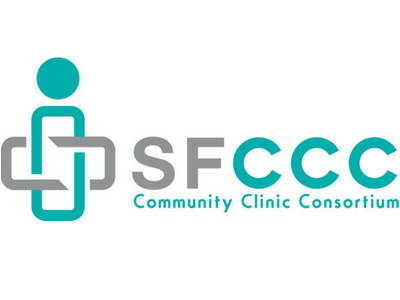NHC SF Member Blog: The Opioid Crisis in San Francisco - Improving Safety Through Service
Hi! My name is John (he/him), and I am currently serving as an Opioid Safety Coordinator with the Value-Based Care (VBC) Team at the San Francisco Department of Public Health. While I’m originally from Sacramento, California, I completed my undergraduate coursework at the University of Pittsburgh in Pennsylvania. I then completed my graduate degree in epidemiology at The Ohio State University, and I plan to return to school in 2025 to become a nurse practitioner.
As an Opioid Safety Coordinator, understanding the recent history of opioid use in San Francisco is integral to my role. The opioid crisis has roots tracing back to the 1990s when pharmaceutical companies aggressively marketed opioid painkillers, leading to widespread overprescription. By the early 2000s, cities globally, including San Francisco, began experiencing a surge in opioid-related overdoses and addiction. In recent years, the crisis has worsened with the emergence of potent synthetic opioids like fentanyl, contributing to a sharp increase in overdose deaths. San Francisco has responded with harm reduction measures, but the crisis has persisted due to the city’s steep economic inequality, structures and systems of oppression, and stigma surrounding substance use disorders. In 2023 alone, San Francisco lost over 800 residents from fatal, accidental opioid overdose -- an outcome disparately impacting minoritized populations.
While my office is at Zuckerberg San Francisco General Hospital with the rest of the VBC team, I rarely spend any time there. Throughout the week, I commute between the clinics from Bayview to the Tenderloin. The impacts of the opioid crisis in San Francisco have become inappropriately synonymous with the Tenderloin; their reach is far wider and extend into all the city’s neighborhoods. Thus, I balance my time between several primary and urgent care clinics (Maria X Martinez Health Resource Center, Potrero Hill Health Center, Southeast Family Health Center, and Tom Waddell Urban Health Center), helping patients with opioid use disorder navigate the complexities of our healthcare systems and the barriers to accessing and receiving appropriate care.
In addition to patient navigation, I co-facilitate two weekly group sessions for patients, one of which implements a contingency management (CM) model for reducing or ceasing stimulant use. CM for stimulant use disorder is a behavioral therapy approach that uses positive reinforcement to encourage individuals to abstain from stimulant drug use. Participants receive tangible rewards, such as gift cards, as incentives to meet predetermined treatment goals, such as submitting drug-free urine samples or attending 1:1 counseling sessions. CM has shown effectiveness in reducing stimulant use and improving treatment outcomes. Additionally, these groups offer a social pillar to patients who may otherwise lack a strong social support network through their recovery process.
Harm reduction is, of course, embedded in my service. Patients who are not in a position to reduce or abstain from use should never face the risk of death or chronic disease as a result of their use. For interested patients, I provide counseling on using Narcan (an opioid antagonist that can reverse an overdose), fentanyl testing strips (lateral flow immunoassays to determine if a substance contains fentanyl due to the heightened risks associated with this synthetic opioid, including overdose and death), and other harm reduction resources (such as the Never Use Alone Hotline – a 24/7 toll-free national crisis response and medical intervention service for people who use drugs while alone).
With that being said, my role as part of the VBC team is not lost on me! Valued-based care refers to a system for structuring healthcare funding that focuses on increasing the quality for patients through defined healthcare outcomes and improving provider performance. I assist with data collection and analysis for quality improvement (QI) metrics, including tobacco cessation, retention of patients on medications for opioid use disorder, and prenatal care information.
Though I’ve previously worked and conducted research related to sexual health and harm reduction, this is my first experience with service specifically targeting individuals who use substances and may have substance use disorder(s). My service term has been incredibly illuminating thus far, and I am eager to take this experience with me into my career as a nurse practitioner.
About the Author
John Hansen (he/him) is one of the 2023-2024 NHC San Francisco AmeriCorps members. He is currently serving as the COVID-19 Responder/Opioid Safety Coordinator with the San Francisco Department of Public Health’s Value-Based Care Team.


